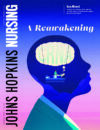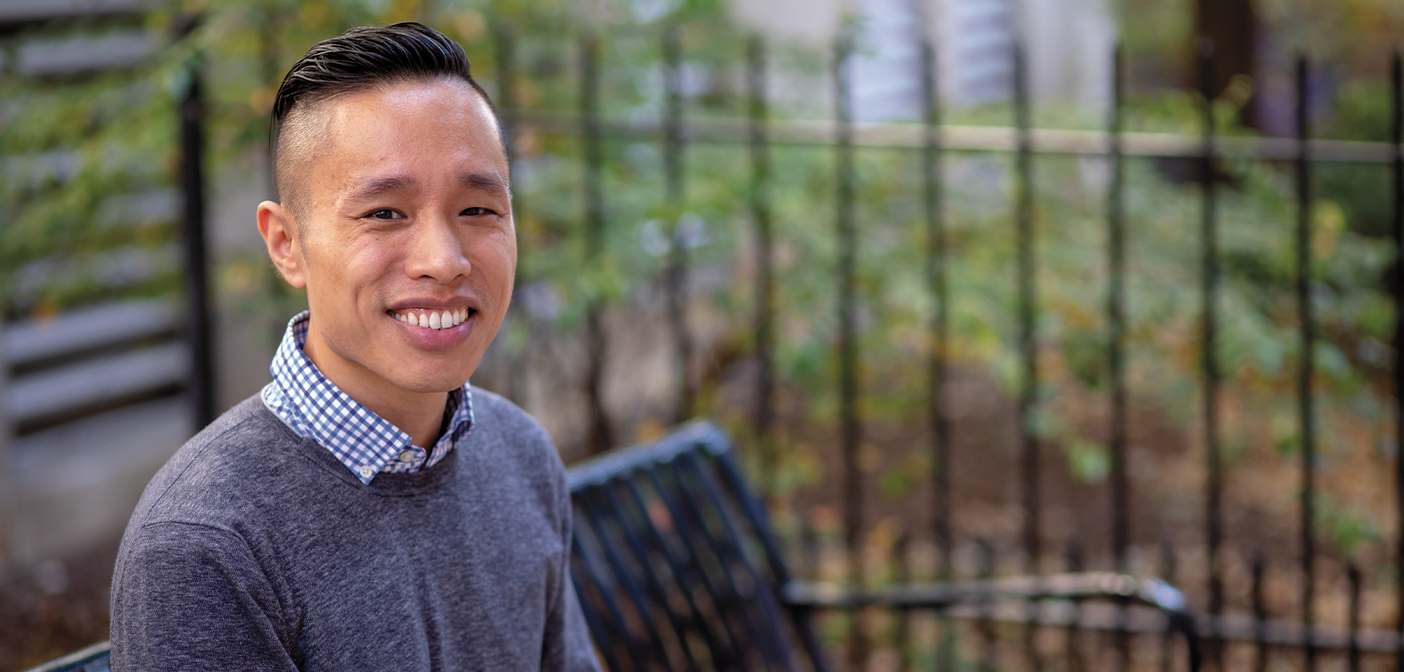Story by Steve St. Angelo | Photography by Chris Hartlove
PhD student works to break the silence on ‘hearing health’ and loneliness
Jonathan Suen can recall moments in his life when it felt as though someone physically took him by the shoulders and pointed him in an alternative direction that suddenly made all the sense in the world. He’s learned to go with it.
Growing up in a multilingual family (English, Mandarin, Taiwanese, and Japanese) on Long Island, NY, he became fascinated with how comparable expressions came to life across each language. That fascination spread to sign language and the nuances of communication among deaf and hard-of-hearing populations. He served two years as a Peace Corps volunteer in Kenya working in deaf education and then earned a clinical doctorate in audiology at Gallaudet University in Washington, DC. “Sign language pushed me to see that just because I’m familiar with a certain way, it doesn’t mean it’s the only way.”
A postdoctoral fellowship brought Suen to the Johns Hopkins School of Medicine, where the advisory board for a community-based hearing care study introduced him to several JHSON faculty. “I was struck by the ways they would answer my questions and by the type of questions they would ask me regarding community health. There was something about the perspectives that they brought to our study that resonated with me,” Suen explains. “I had aspirations for further research training, and I started to ask whether the School of Nursing’s PhD program would accept applicants without a nursing background.”
Now part of that program, Suen hopes to address hearing health equity and issues of loneliness, isolation, and hearing loss among older adults. “We know that as Americans age, the number of people living alone tends to increase,” he says. “But even people who are socially integrated express loneliness. This highlights a distinction between social isolation and loneliness. … We don’t fully understand the connections with hearing loss yet nor how we should address them holistically in health care, but we are seeing that age-related hearing loss is associated with adverse outcomes like accelerated cognitive decline and that loneliness can lead to increased stress and even earlier death.”
Additionally, as Suen explains, many who could benefit from hearing aids commonly refuse them for several reasons:
- They can be expensive.
- They often require several follow-up appointments, complicated by transportation challenges.
- They take time getting used to. “It’s like a new pair of shoes … if you keep taking them off too soon, they’ll never break in.”
Another problem Suen sees is a health care approach “propped up by dated notions that hearing loss was a natural part of getting older” and therefore excluded from routine care. The answer? Begin by reframing perspectives and increasing awareness around the value of “hearing health.” He points to physical fitness, once considered a luxury concept, until it was promoted as a fundamental for health and well-being: “This can help you live longer and better.”
So Suen is ready to point health care in an alternative direction.

